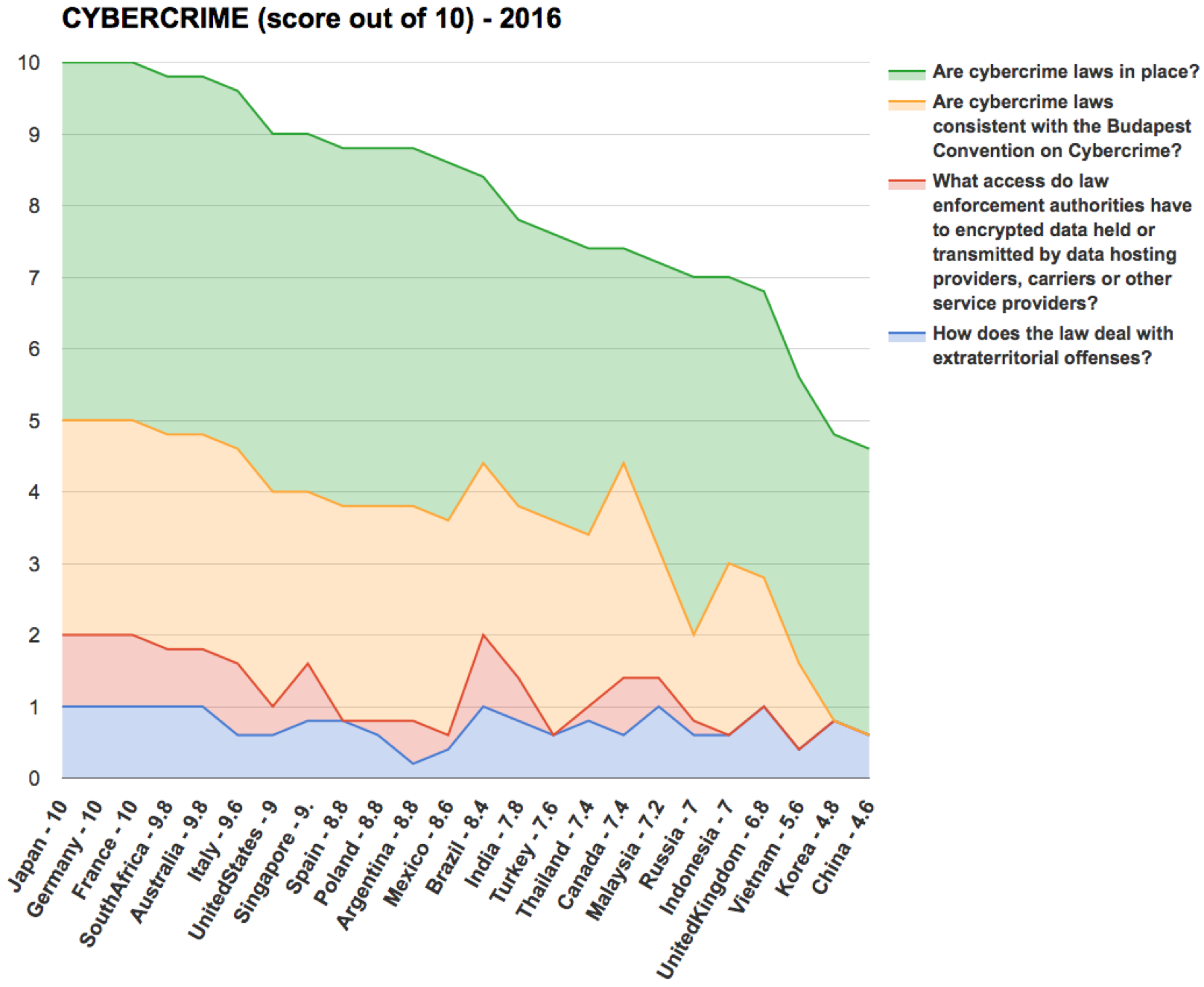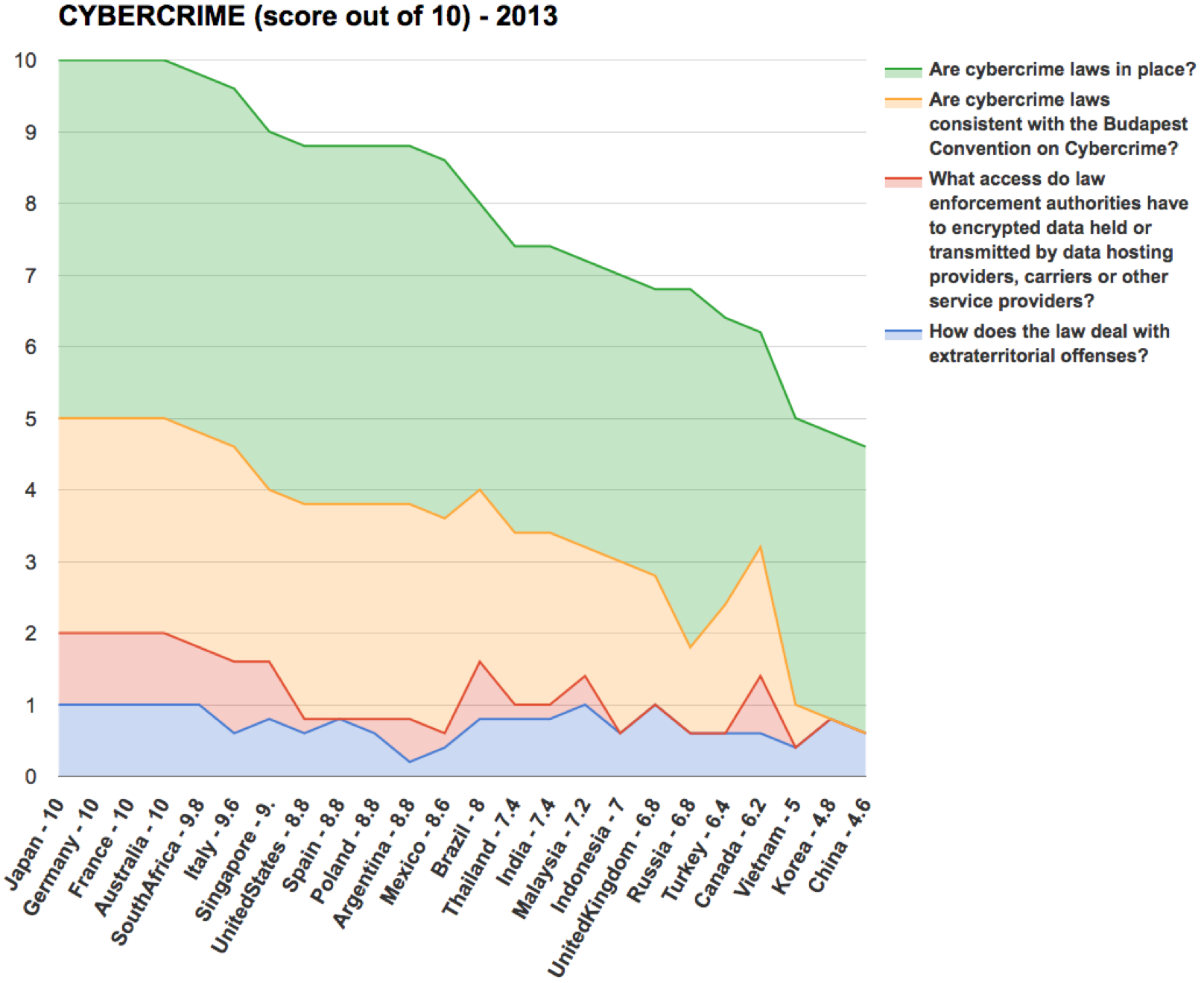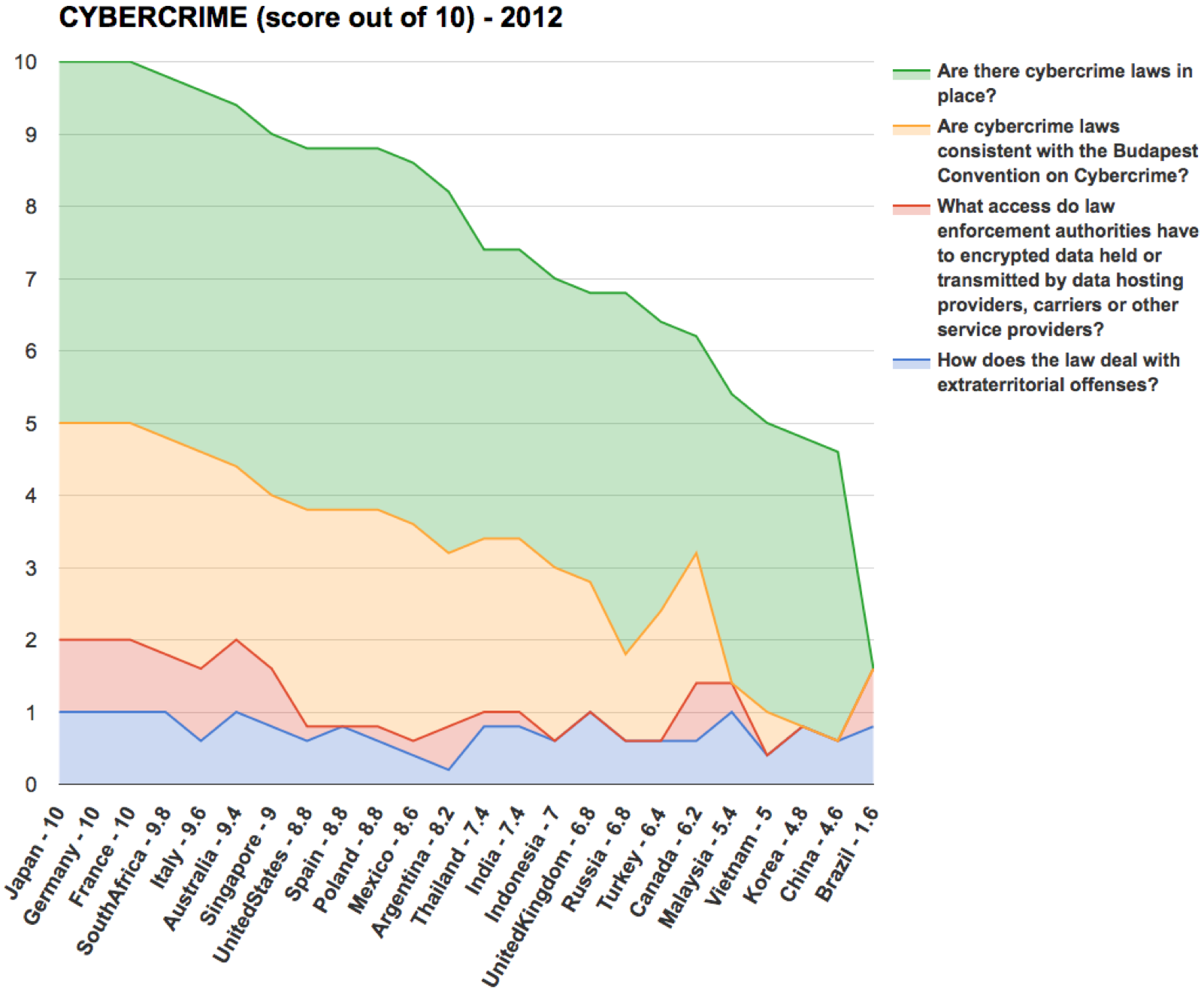BSA & Galexia Global Coud Computing Scorecard (2016) - Galexia Analytics Release
Cybercrime
Because the massive quantities of valuable data held in cloud-computing data centers have attracted the attention of organized crime, governments must address these ever-evolving threats with robust legislation, investigation and enforcement.
This section examines cybercrime laws, as well as rules relating to investigation and enforcement, which includes access to encrypted data by investigators and the prosecution of extraterritorial offenses.
Overall, the Scorecard indicates that most countries are rising to the challenge of protecting data from cyber attack and physical security breaches. Most have legislation combatting the unauthorized access of data stored in the cloud. Most also have now implemented computer crime laws or cybercrime laws, many of which are broadly compliant with the Convention on Cybercrime.
Indeed, many countries in the study — Australia, Canada, EU Member States, Japan and the United States — have now ratified the convention. Australia, France, Germany and Japan score extremely high results in the cybercrime section.
Unfortunately, a few key jurisdictions still have gaps and inconsistencies in their cybercrime laws. China, Korea, Russia and Vietnam scored poorly.
Countries diverge when it comes to enforcement, investigation and prosecution of cybercrime. In particular, many countries are debating the extent to which law enforcement should be allowed access to encrypted data. The resolution of these issues and their impact on global policy remains to be seen.
The following visualisations show the transition and patterns in the overall scores and scoring components for this theme over time (from 2012 to 2016):



![[ Galexia Dots ]](/images/hr.gif)

![[Privacy Impact Assessment (PIA) for Cooperative Intelligent Transport System (C-ITS) data messages]](/public/ssi/pubs/pub_3.png)
 print this page
print this page sitemap
sitemap rss news feed
rss news feed manage email subscriptions
manage email subscriptions